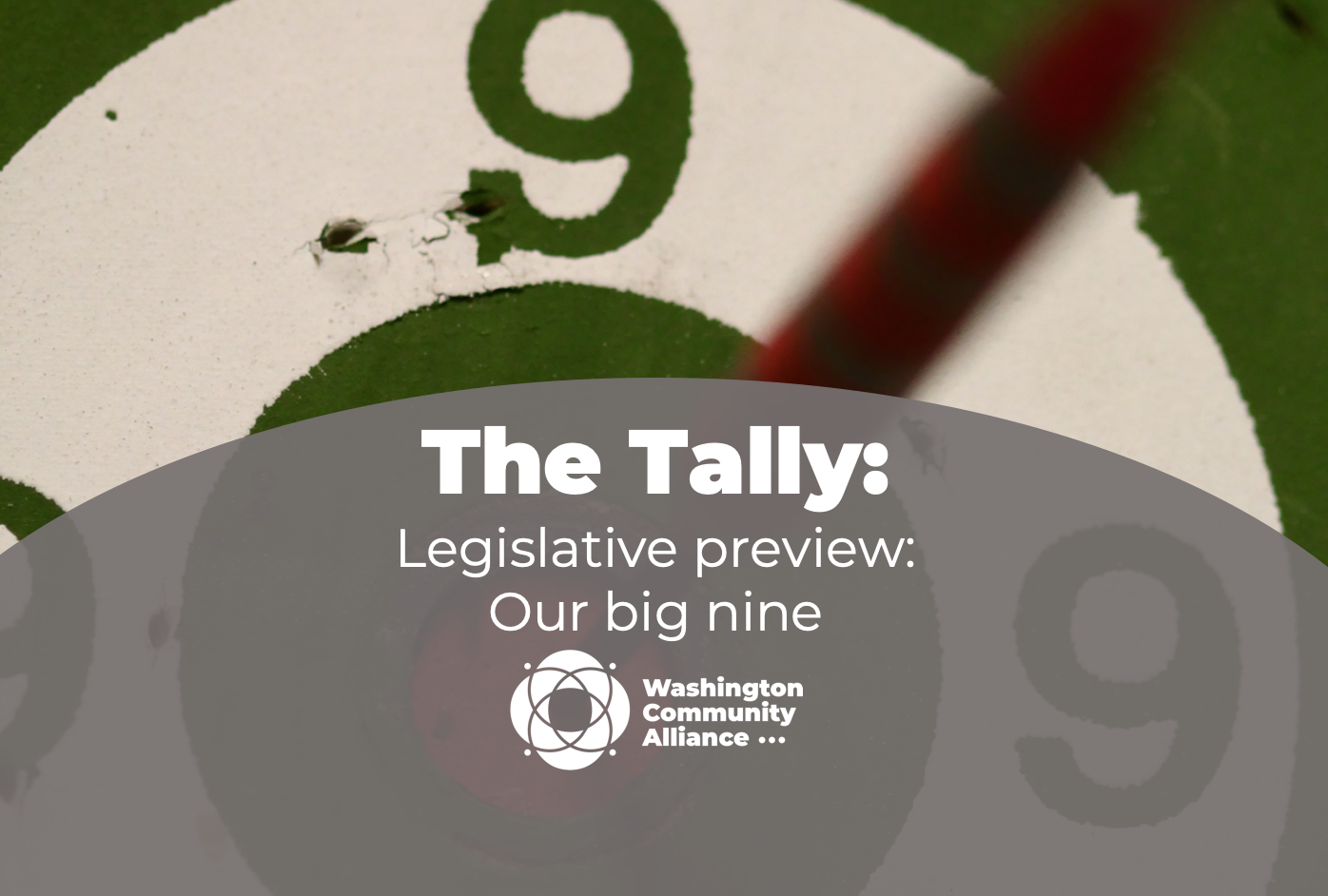
Friends—
IKf you’ve been with The Tally from the beginning, you know what’s what. If this is first legislative session with us: Welcome. We’re so glad you’re here. Have a seat. Put your feet up. Drink a glass of water.
The Tally started as a way for us to connect our people to the legislature—specifically, the bills that most affect our communities. During session, we’ll send weekly updates, news, and actions you can take with links and everything so all you have to do is just click (we know you’re busy so we’re trying to make it easy for you!).
One thing to note about this session: it’s a short one. It begins Monday, 1/10, and will only go till mid-March. Anyway, short session, short preamble. So, without further ado…
🐐 Our big nine 🐐
🚫 Ending Qualified Immunity for Police (HB 1202)
In 1967, the U.S. Supreme Court made it so government agents (like police) couldn’t be held liable for their misconduct—even when they break the law. What became known as qualified immunity hinges on a highly subjective, and nearly impossible to disprove, “good faith” standard. Like many of our issues it’s a place where congress failed, but our state can lead. Legislators should end this heinous policy that protects violent police officers from accountability. Last year, we made some headway, successfully removing the “malice” standard. This year, we’re coming for the whole thing.
🔎 Community Oversight of Police (HB 1203)
It’s only fair that the people who live in a policed area get a say on what the police do. Adding community oversight empowers communities in every city to compel testimony from police leadership and issue directives for disciplinary action that allow real accountability.
🔀 Independent Investigations for Police (HB 1507)
Yet another way police remain unaccountable is how, when a complaint is filed, other law enforcement bodies like local prosecutors or county sheriffs investigate the very police they work with on a day-to-day basis. Maybe that’s a bad idea when the whole Blue Wall of Silence exists. This is a no brainer, and we’re doing everything we can to not make a “who watches the watchmen” joke.
🏦 Wealth Tax (HB 1406 & SB 5426)
Our state has the most regressive tax system in the nation. Like, all drama aside, we actually do. Those with the least pay the most. And that’s not right. Especially when our state ranks seventh in number of billionaires and third in total net worth. It’s high time we implement a 1% on wealth that’s over a billion dollars.
🌎 Mitigate The Climate Crisis (HB 1099)
Last year, state legislators said “lol jk” to passing HB 1099, which would update what’s called the Growth Management Act (GMA) so that our cities reduce greenhouse gas emissions, and protect communities and natural resources from the accelerating impacts of a changing climate. It would also finally embed a more robust and up-to-date definition of environmental justice into the GMA, which would then distribute funds to the most-environmentally-impacted communities (which are largely PoC).
📜 Improve the Washington Voting Rights Act (SB 5597)
We all saw what happened with Yakima, where the county admitted to disenfranchising Latino voters (7 years after community successfully sued the city for the exact same thing). Obviously our VRA is in need of some technical changes to protect voters’ voices, remove barriers to filing challenges, and obtain fair remedies from the courts.
💌 Unemployment Insurance for Every Worker (Not Yet Filed)
Our unemployment system structurally excludes undocumented workers, many of whom pay taxes to fund unemployment benefits, work through the pandemic to put food on our tables, sanitize surfaces, and take care of patients despite the health risk. We owe it to all of us to include all workers in the Employment Security Department’s mandate by building a permanent, separate unemployment insurance system that provides benefits to undocumented workers.
🗳️ Local Options for Local Elections (SB 5584)
Our current winner-take-all system disincentivizes actually voting with your heart. It forces us to think about strategic voting and stokes cynicism. Switching to Ranked-Choice Voting would allow voters to pick first, second, and third choices, which means if their most preferred candidate can’t make the cut, voters’ desires still matter because their second-most preferred vote can. This bill doesn’t mandate anything for towns or cities; it simply lifts the ban on reforms, like ranked-choice voting and proportional representation. Organizing around any issue only matters in the context of a reliably responsive and proportional multiracial democracy.
🇺🇸 Presidential Ranked-Choice Voting (Not Yet Filed)
The same thing as the bill above, but applied to presidential elections! With Senator Rivers (R) and Senator Mona Das (D) leading the effort in the Senate, this is our big, beautiful, bi-partisan baby bill. It’s especially important because of the high stakes of 2024, and the fact that the last presidential primary had about 25% of all the votes cast in Washington devoid because they went to candidates who were no longer in the race, at no fault to voters. Some candidates pulled out well after people could already begin casting their ballots in our state.
What do you think? Have any questions? Tweet us your thoughts @wacommalliance. Keep up with the action and opportunities to get involved with our legislative newsletter The Tally.

